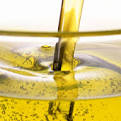







Aromatherapy : An Answer
It is not an accident that aromatherapy has developed in response to these trends. We live in an age when the individual , depending on place of residence, experience, or social status, is faced - in varying degrees - with the effects of our high-tech civilization and the consequences of scientific reductionism.
The loss of nature is equally painful for rich and poor.
Increased ecological awareness has led to the renewal of " green zones" and to the protection of forests, lakes, and mountains.Those who can flee to those regions of the globe still untouched by the devastation of techno-civilization.
Regardless of how the conflict over ecological questions will be resolved, the fact remains that the majority of people today suffer from the loss of nature.
The desire for more nature and less technology in often expressed in vague or ill-defined way.
The ambiguous language of many aromatherapy books , the move towards esotericism that can be found in many of those works, and the conscious departure from the (psudo-) precise language of medicine and pharmacology are all indicative of phenomenon.
Aromatherapy can be a first step in overcoming seperation of mind and emotion, of body and soul.
The esoteric trend in contemporary aromatherapy literature may be a sign of the attempt to bridge this gap.
Aromatherapy thereby mirrors a fundamental cultural trend.
Theodore Roszak proclaims the end of Freudian psychology in which the soul is autonomous, scientifically curable entity.
According to Roszak psychology will only have a chance when it takes into account more than just human beings but also nature and the planet in which we live.
Likewise, new research in the area of neuropsy-chology points in the same direction, showing the relationship between emotions, healing, and health.
The search for ways to overcome the alienation caused by techno-civilization is a widespread phenomenon not limited to the realm of aromatherapy.
What is impressive about aromatherapy is that it allows us to overcome part of this alienation so easily. In the bottle of essential oil that we bring home from the natural food store, we find more than a lavender or a rosemary oil.
We find the fragrance of Provence, smells that elicit memories of grandmother's clothes chest, but they are also a practical way to relieve the itch of a mosquito bite, saving us from incessant scratching and bleeding.
In unifying these disparate elements, we intuitively feel the impact of reductionism fading.
For those stressed by civilization, aromatherapy offers nature in a bottle, nature interacting with humans in many more ways than are possible for conventional products.
Reference: Advanced Aromatherapy: Kurt Schnaubelt, P h .D .
Articles Latest
- Chamomile Roman - Chamaemelum nobile
- Chamomile Maroc - Ormenis multicaulis
- Chamomile German - Matricaria recutica
- From Biology To Aromatherapy
- Plant Messengers
- Celery Seed-Apium graveolens
- Cedarwood Virginian - Juniperus virginiana
- Cedarwood, Texas- Juniperus ashei - Essential oils
- Cedarwood Atlas- Cedrus atlantica - Essential Oils
- Cassie - Acacia Farnesiana - sweet acacia
- Cassia - Cinnamomum Cassia
- Cascarilla Bark - Croton eluteria
- Carrot Seed- Dacus Carota
- CARDAMON
- CARAWAY
- CANANGA
- CAMPHOR
- CALAMUS
- Calamintha-Calamintha officinalis
- CAJEPUT- Melaleuca cajeputi
- Plant Expression
Articles-Most Read
- Home
- Balsam Canadian - Abies balsamea
- Balsam Peru
- Copaiba Essential Oil
- North America: Tea Tree and Monarda-3
- Basil French - Ocimum basilicum
- Basil Exotic
- North America: Tea Tree and Monarda-2
- Exploring Transcultural Constants
- Thyme Essential Oil
- Balsam Tolu
- Palma Rosa
- Bay - West Indian - Pimenta racemosa
- The Bioactivity of Essential Oils
- Benzoin - Styrax benzoin
- Why Pharmacology Cannot Demonstrate Essential Oil Efficacy
- Exploring Essential Oil Activity The Conventional Way
- Complex information From Plants
- Aromatherapy: An Answer
- Contacts
